In the eyes of most Americans 2015 was a good year for them, but not for the world
When Americans look back on 2015, they see it as a pretty bad year for the world. But that’s not any different from how the public has viewed the last few years. In end-of-the-year Economist/YouGov Polls in 2014 and 2013, most Americans thought the twelve months behind them had been okay for their families, but clear majorities assessed each year ending as a bad one for the world.
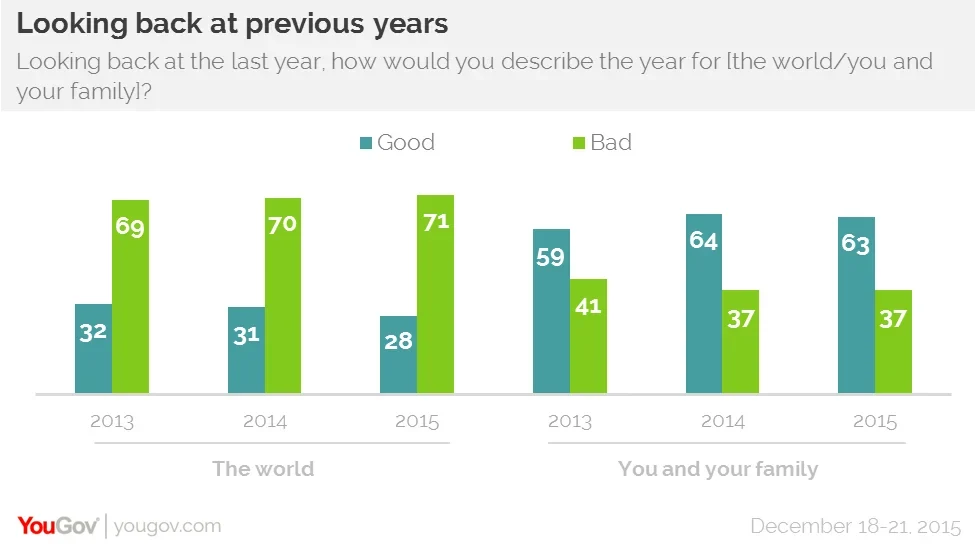
Two in three say 2015 was good for their families, though fewer than one in ten say it was “very good” for them. Seven in ten describe the current year as bad for the world, and nearly one in four – more than in either of the last two years – say 2015 was “very bad” for the world.
Democrats claim the world is a little better off than Republicans do, but majorities in both groups are negative: 87% of Republicans and 58% of Democrats say 2015 was a bad year for the world. Majorities of both Republicans and Democrats, however, believe their family’s 2015 was good.
Fighting in the Middle East and recent terrorist attacks clearly haven’t helped Americans feel better about the state of the world. 58% say the United States is less safe from terrorist attacks than it was just a year ago. A third put the risk in their own communities as higher now than a year ago. The risk is seen as especially severe by Republicans: nearly nine in ten of Republicans say the country is less safe than a year ago, and more than half describe their own communities as less safe.
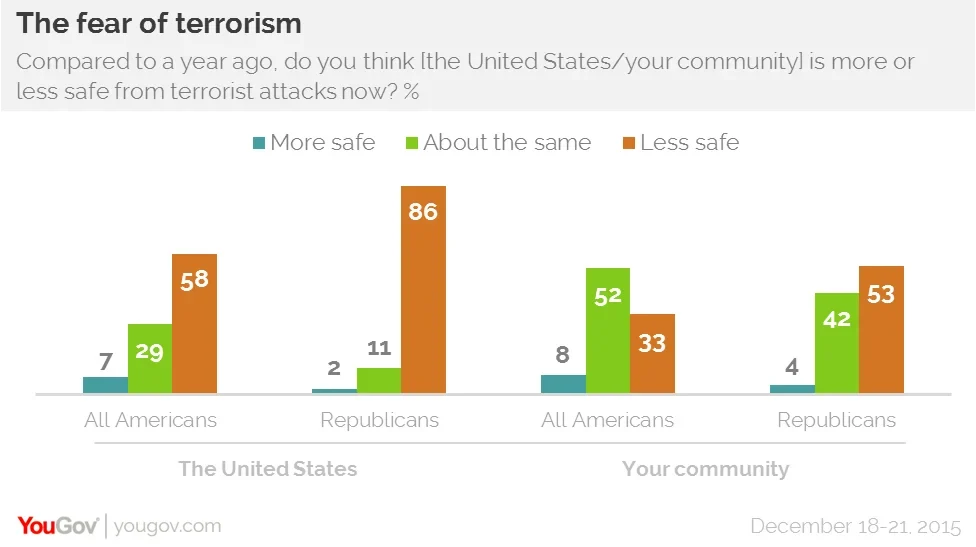
Over the last month, Economist/YouGov Polls have tracked the change in Republican presidential preference as foreign policy moved to the forefront as an important issue. Neurosurgeon Ben Carson, whom Republicans are uneasy about when it comes to handling terrorism and serving as Commander-in-Chief, has dropped to fourth place in GOP preference for the party’s 2016 nomination. For one in three Republicans, terrorism has become the country’s most important issue, outweighing even the economy.
Americans also became more nervous about the lack of progress in the Middle East and in Afghanistan in 2015. For seven in ten the situation in the Middle East is worse than it was a year ago. Nearly half believe things have gotten worse in Afghanistan.
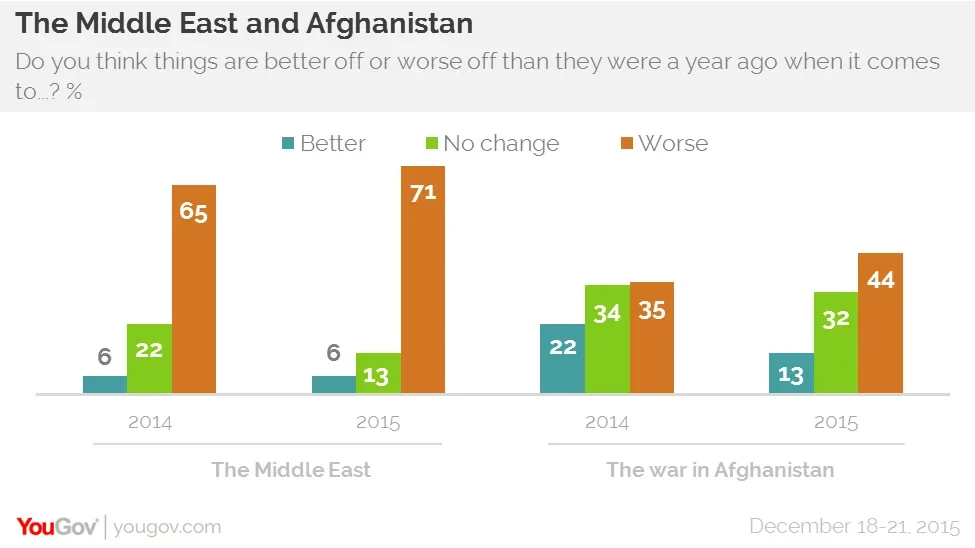
Though Americans were pessimistic about the Middle East one year ago, too, their pessimism has only increased in the last year.
Assessments of the economy have also slipped in the last year. Even with declining unemployment rates, almost no inflation, and other good economic reports, more Americans in the latest poll believe the economy is getting worse than think it is getting better, though perceptions are better now than they were when President Obama first took office in 2009. Last year at this time, the public was a little more likely to think thing were improving economically.
President Obama’s approval rating as he heads into his last year in office is also negative. 52% of the public disapproves of the way he is handling his job, and only 43% approve. The President’s approval rating has changed little in the last year. Similar percentages approve of his handling of the economy (though fewer disapprove than disapprove on his overall performance on that issue), but he receives lower marks when it comes to his handling of terrorism.
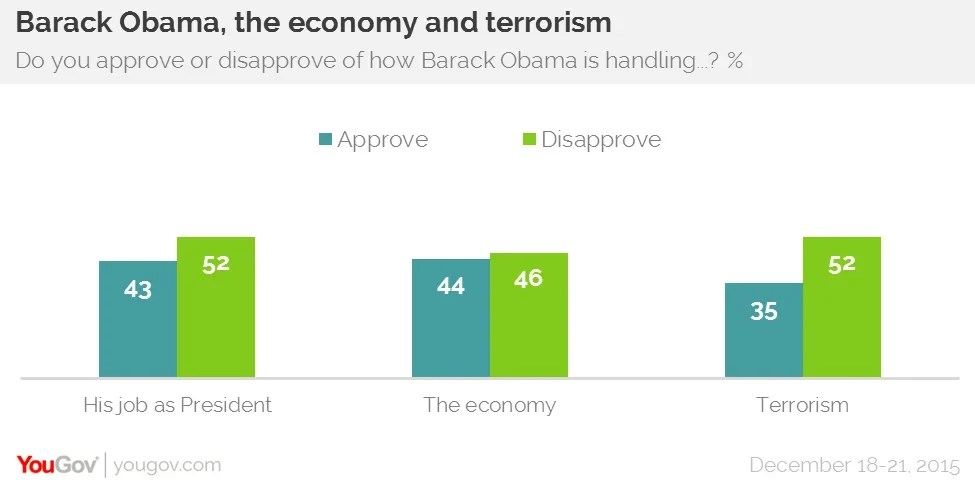
Although approval of the President’s handling of terrorism has dropped a little since the November 13 Paris and the December 2 San Bernardino attacks, public opinion of the President’s performance on terrorism was negative even before those attacks.
Congress, as usual, fares worse than the President in public approval. Just 13% approve of how Congress is handling its job. But there is one positive movement in the assessments of Congress. Last December more than half the public thought Congress had accomplished less than usual. This year, while hardly any people think Congress has accomplished more than usual, fewer say it has accomplished less than said that last year. That figure has dropped 20 points.
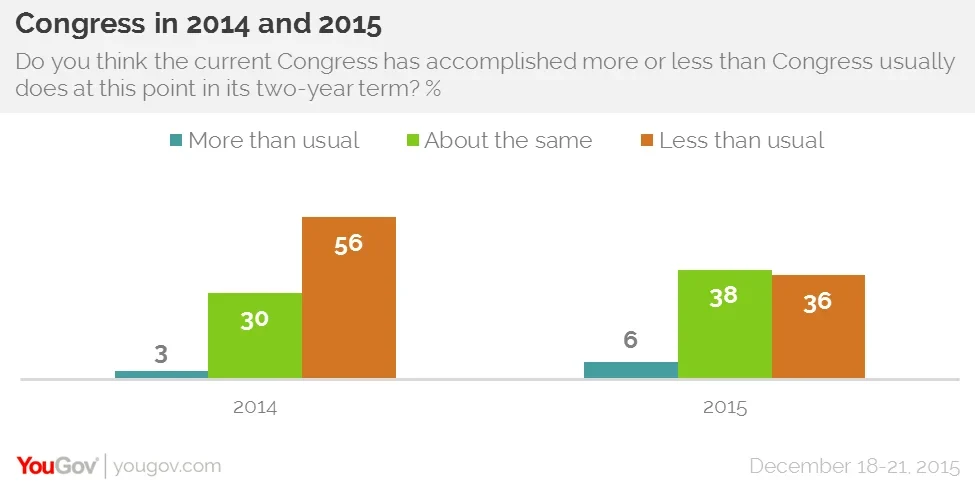
See the Economist/YouGov results
Economist/YouGov poll archives can be found here.









